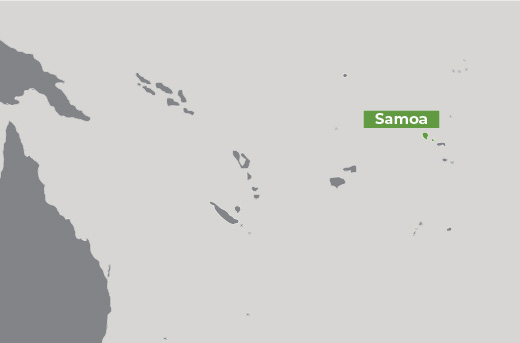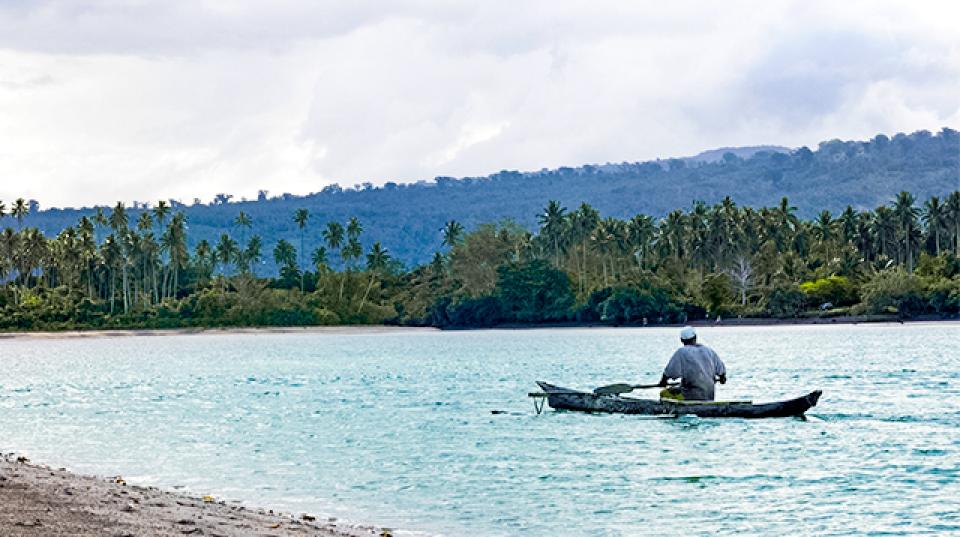Overview
This project will explore the experiences, treatment, opportunities and barriers for people of diverse sexual orientation, gender identity and/or expression (SOGIE) across Samoan agri-food systems, and co-design strategies to assist in breaking down cultural and infrastructural barriers to full participation in agri-food systems in which they choose to participate; village decision making; as well as national consultations and policy processes.
People of diverse SOGIE engaged across agri-food systems in Samoa experience discrimination and resource access issues. There is no literature in English that addresses these issues across the agricultural sector in the Pacific, or Samoan contexts. Programs and policies which assume a cis-gender, heterosexual context neglect the ways in which queerness and gender nonconformity affect involvement in farming which in turn erases and silences the expertise, skill and labour of people of diverse SOGIE across agrifoods systems. It is important to identify and seek to contribute to these significant gaps in knowledge and policy design as people of diverse SOGIE are frequently excluded from formal and culturally important food production and preparation due to their non-normative gender presentation and/or sexual orientation. This economic exclusion affects SOGIE people's nutrition, food security, income, and access to housing.
In Samoa, subsistence farming is the foundation of the local food system and plays a crucial role in sustaining the economy. Subsistence farming is the foundation of Samoan food culture, with families relying on small-scale agriculture and fishing to produce staple crops such as taro, bananas, breadfruit, and yams, as well as seafood for local consumption. On the other hand, commercial farming, though smaller in scale, focuses on cash crops like cocoa, coffee, kava, and coconut products (copra and coconut oil) for export and local industries.1
While subsistence farming provides the majority of Samoans with their daily nutritional needs, the commercial food system generates income and supports economic growth, helping the country maintain a balance between self-sufficiency and participation in global trade.
1 Samoa Bureau of Statistics (2019). Agriculture Census 2019 - Main Results. Retrieved from https://www.sbs.gov.ws/images/sbs-documents/Economics/SAMOA-AGRICULTURE-CENSUS/SAMOA_AGRICULTURE_CENSUS_2019.pdf
Activities and expected outcomes
- Identifying and critiquing the current engagement strategies employed by the Samoan government, including the Ministry for Agriculture and Fisheries (MAFS) and the Ministry for Women, Community and Social Development (MWCSD), which currently privilege binary gender groups, a practice which erases the contribution and expertise of people of diverse sexual orientation, gender identity and/or expression working or with the potential to contribute to agri-food systems.
- Developing, trialling, and evaluating locally co-designed strategies to assist in breaking down these cultural and infrastructural barriers to full participation in village and national consultation and policy processes, including: a) sensitising government staff to the needs and experiences of people of diverse SOGIE. b) developing employment programs that attend to these needs, such as gender-inclusive dress policies, and alternative pathways to training and education. c) designing funding schemes to support local, existing community groups to support their members to develop small business ventures across agri-food systems based on their existing skills and interests.
- Producing academic and public-facing research and policy guidance that brings these findings to an audience of policy professionals, workers across agri-food supply chains, and people of diverse SOGIE living and working in Samoa and across the Pacific.
- Establishing the regional Agriculture and Marginality – Gender and Sexuality in Agri-food Systems Research Network.





